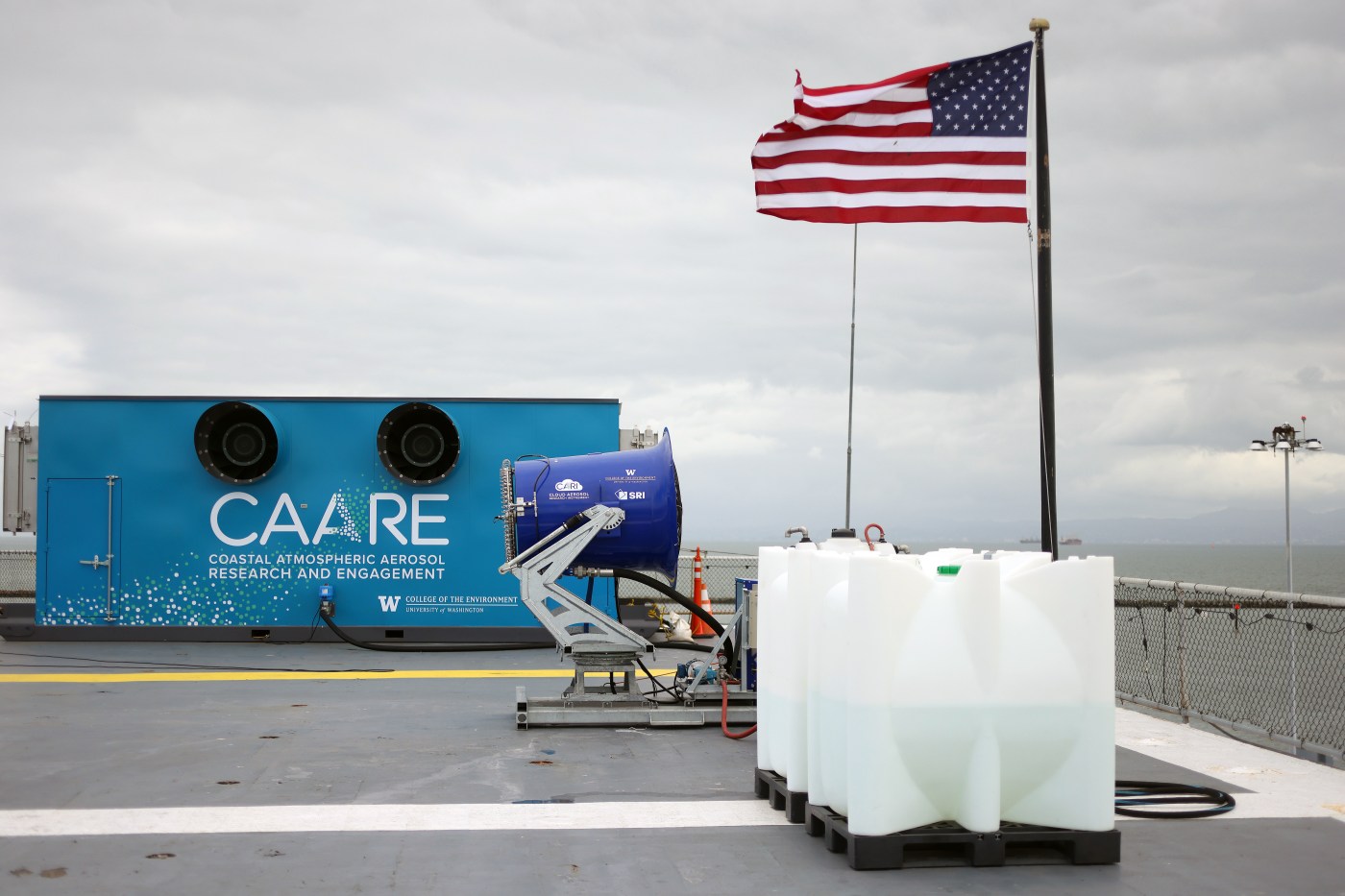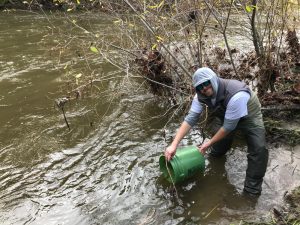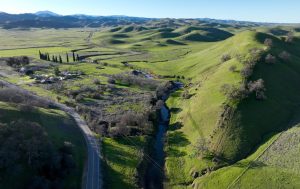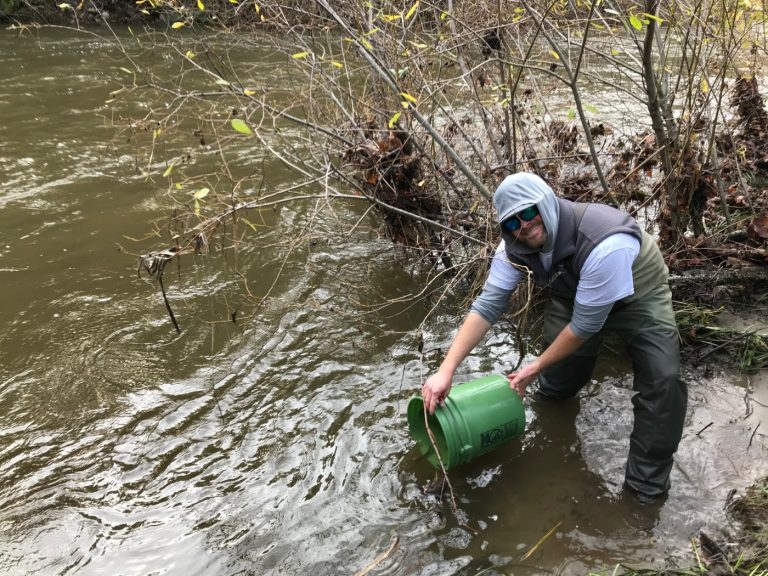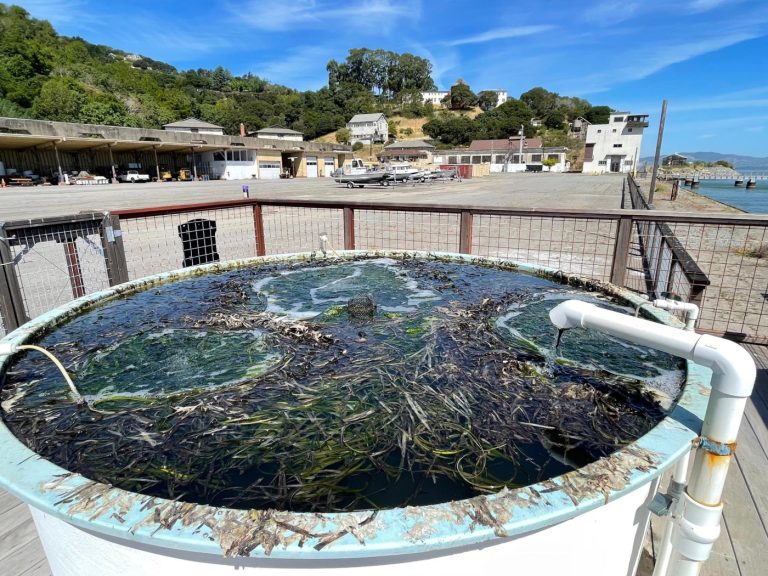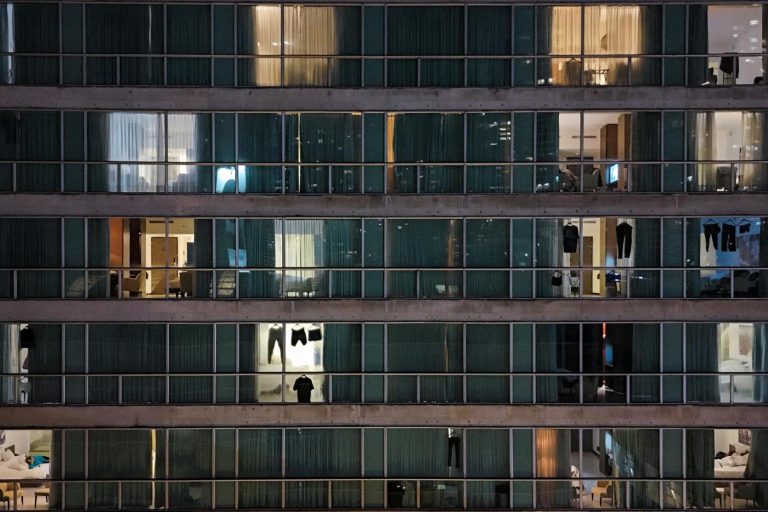Alameda’s City Council unanimously voted Tuesday night to bar a climate change-related experiment on the deck of the USS Hornet from resuming, despite an earlier report that found that the project posed no health or safety risks to local residents or wildlife.
The council voted on the measure after presentations by city employees and researchers from the experiment, which shoots microscopic droplets of salt water into the sky to determine whether they can become more reflective to block excess heat from the Sun making it to Earth’s surface. Some at the meeting expressed consternation that the city had not been made aware of the experiment before it began and voiced continued concerns about its possible health impacts.
The city manager’s recommendation to the council advised allowing the experiment to continue with the addition of new limits, including the use of air quality monitors and only allowing work at certain times of the day.
At the meeting, Alameda Mayor Marilyn Ezzy Ashcraft expressed her disappointment that she learned about the experiment by reading the news and derided a lack of transparency.
“Was it intentional? Was it an oversight?” Ezzy Ashcraft said. “It just wasn’t the best way to get started.
“There are so many different competing considerations we need to take into effect, and I don’t feel that you’ve made your case,” Ezzy Ashcraft said after representatives from the city and experiment presented. “I don’t have a huge burning desire to be on the cutting edge of everything.”
Ezzy Ashcraft said in an interview Wednesday with the Bay Area News Group that the process may have gone differently if the researchers had come to the city before beginning the experiment to get approval and address any concerns.
“The experiment was shrouded in secrecy, then it turns out it was in a controversial field,” she said. Supporters of the experiment “made it more of an uphill climb for themselves.”
The mayor emphasized that Alameda supports climate change research, especially as an island, but pointed to testimonies from scientists at the meeting expressing concern that geoengineering projects could have unintended consequences across the globe.
“We take climate change and sea level rise very seriously,” she said, “but we are also very mindful of unintended consequences.”
The Marine Cloud Brightening Project began tests in April, with fanfare and presentations of the experiment to curious reporters. Researchers from the University of Washington set up on the upper deck of the USS Hornet, a former World War II-era aircraft carrier now docked in Alameda as a museum, to take advantage of the Bay Area’s often-cloudy skies.
The Alameda City Council asked the researchers to pause the experiment in early May on the grounds that it was a violation of the Hornet’s lease with the city, which only allows for museum operations.
The city then commissioned an independent health and safety review of the experiment, which found no measurable health risk to local residents or wildlife when it was released last week.
Researchers from the project reiterated the safety of the cloud brightening experiment, pointing to the results of both Alameda’s independent review and their own safety review. The research into these aerosol effects is “increasingly critical to improving tools for planning and responding to climate change to better protect people and ecosystems,” according to a joint statement from Sarah Doherty, the program’s director of the Marine Cloud Brightening Program, principal investigator Rob Wood and Kelly Wanser, executive director of SilverLining, an organization helping to find and test potential climate solutions like the cloud project.
“We are disappointed by the decision from the City of Alameda,” they said in the statement. “While we are already exploring alternative paths forward for the CAARE research, we urge the City of Alameda to reconsider today’s decision.
“The opportunity to undertake this research in a fully open and transparent way at a site like the USS Hornet Sea, Air and Space Museum is unparalleled in its potential to increase access and equitable engagement for all people, and especially for Indigenous Peoples and other vulnerable and underserved communities,” Doherty, Wood and Wanser added.
The USS Hornet museum plans to follow up with the city to see if there is a potential path forward, Russell Moore, the museum’s director of events and outreach for the USS Hornet Museum, said in a statement.
Related Articles
Bay Area forecast: How long will the heat last?
California rescue centers concerned by illness, deaths among sea lions as facilities fill
Claudia Sheinbaum becomes first female president of Mexico
California’s ‘community solar’ rules deal new blow to industry
More people make ‘no-buy year’ pledges as overspending or climate worries catch up with them
“We are disappointed in the city’s decision,” Moore said. “The city’s own safety report concluded that the study being proposed by the University of Washington was completely safe.”
The Hornet is slated to lose the $100,000 in income it was estimated to receive as part of the partnership with the experiment in addition to the cost of cancelled rentals and other costs, according to the city manager’s recommendation.
“The lost revenue will be a burden on us but we will do our best to manage,” Moore said. “The Museum does not receive any federal, state or local funding, so we depend on programs such as this as well as visitors and donors.”
The city council heard public comment from both supporters and dissidents at the meeting. Some expressed concerns over the project’s transparency or the consequences of marine cloud brightening.
“While this is a local decision, it has far-reaching consequences,” Gary Hughes, the Americas program coordinator for Biofuel Watch, said in a public comment at the meeting, urging the city council to not allow the experiment to continue. “There are global climate justice dynamics at stake.”
Other speakers expressed support for the project’s goal of combating climate change.
“This is our collective future that we are fighting for, and climate change is complex,” said Arianna Rehak, a local citizen, at the meeting. “I don’t know the science, but what I do know is this study is about better understanding it … This is not about deployment, this is research to see if we should deploy.”
